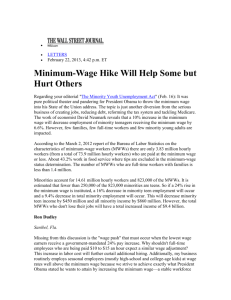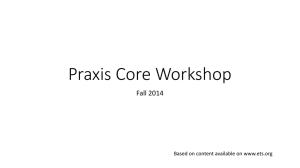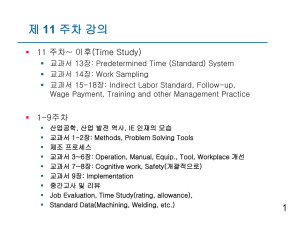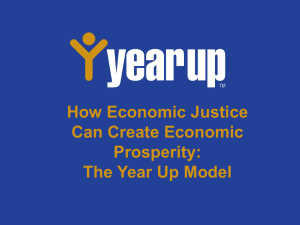Race Genealogy K
advertisement
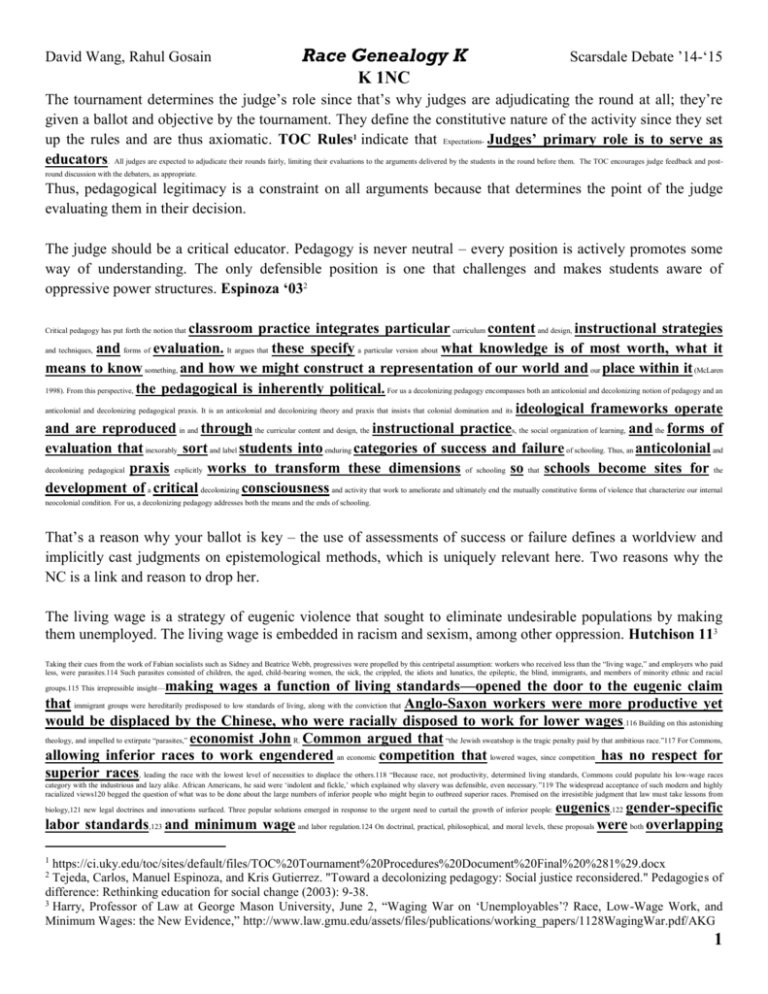
David Wang, Rahul Gosain Race Genealogy K Scarsdale Debate ’14-‘15 K 1NC The tournament determines the judge’s role since that’s why judges are adjudicating the round at all; they’re given a ballot and objective by the tournament. They define the constitutive nature of the activity since they set up the rules and are thus axiomatic. TOC Rules1 indicate that Expectations- Judges’ primary role is to serve as educators. All judges are expected to adjudicate their rounds fairly, limiting their evaluations to the arguments delivered by the students in the round before them. The TOC encourages judge feedback and postround discussion with the debaters, as appropriate. Thus, pedagogical legitimacy is a constraint on all arguments because that determines the point of the judge evaluating them in their decision. The judge should be a critical educator. Pedagogy is never neutral – every position is actively promotes some way of understanding. The only defensible position is one that challenges and makes students aware of oppressive power structures. Espinoza ‘032 classroom practice integrates particular curriculum content and design, instructional strategies and techniques, and forms of evaluation. It argues that these specify a particular version about what knowledge is of most worth, what it means to know something, and how we might construct a representation of our world and our place within it (McLaren 1998). From this perspective, the pedagogical is inherently political. For us a decolonizing pedagogy encompasses both an anticolonial and decolonizing notion of pedagogy and an anticolonial and decolonizing pedagogical praxis. It is an anticolonial and decolonizing theory and praxis that insists that colonial domination and its ideological frameworks operate and are reproduced in and through the curricular content and design, the instructional practices, the social organization of learning, and the forms of evaluation that inexorably sort and label students into enduring categories of success and failure of schooling. Thus, an anticolonial and decolonizing pedagogical praxis explicitly works to transform these dimensions of schooling so that schools become sites for the development of a critical decolonizing consciousness and activity that work to ameliorate and ultimately end the mutually constitutive forms of violence that characterize our internal Critical pedagogy has put forth the notion that neocolonial condition. For us, a decolonizing pedagogy addresses both the means and the ends of schooling. That’s a reason why your ballot is key – the use of assessments of success or failure defines a worldview and implicitly cast judgments on epistemological methods, which is uniquely relevant here. Two reasons why the NC is a link and reason to drop her. The living wage is a strategy of eugenic violence that sought to eliminate undesirable populations by making them unemployed. The living wage is embedded in racism and sexism, among other oppression. Hutchison 113 Taking their cues from the work of Fabian socialists such as Sidney and Beatrice Webb, progressives were propelled by this centripetal assumption: workers who received less than the “living wage,” and employers who paid less, were parasites.114 Such parasites consisted of children, the aged, child-bearing women, the sick, the crippled, the idiots and lunatics, the epileptic, the blind, immigrants, and members of minority ethnic and racial making wages a function of living standards—opened the door to the eugenic claim that immigrant groups were hereditarily predisposed to low standards of living, along with the conviction that Anglo-Saxon workers were more productive yet would be displaced by the Chinese, who were racially disposed to work for lower wages .116 Building on this astonishing theology, and impelled to extirpate “parasites,” economist John R. Common argued that “the Jewish sweatshop is the tragic penalty paid by that ambitious race.”117 For Commons, allowing inferior races to work engendered an economic competition that lowered wages, since competition has no respect for superior races, leading the race with the lowest level of necessities to displace the others.118 “Because race, not productivity, determined living standards, Commons could populate his low-wage races groups.115 This irrepressible insight— category with the industrious and lazy alike. African Americans, he said were ‘indolent and fickle,’ which explained why slavery was defensible, even necessary.”119 The widespread acceptance of such modern and highly racialized views120 begged the question of what was to be done about the large numbers of inferior people who might begin to outbreed superior races. Premised on the irresistible judgment that law must take lessons from eugenics,122 gender-specific labor standards,123 and minimum wage and labor regulation.124 On doctrinal, practical, philosophical, and moral levels, these proposals were both overlapping biology,121 new legal doctrines and innovations surfaced. Three popular solutions emerged in response to the urgent need to curtail the growth of inferior people: 1 https://ci.uky.edu/toc/sites/default/files/TOC%20Tournament%20Procedures%20Document%20Final%20%281%29.docx Tejeda, Carlos, Manuel Espinoza, and Kris Gutierrez. "Toward a decolonizing pedagogy: Social justice reconsidered." Pedagogies of difference: Rethinking education for social change (2003): 9-38. 3 Harry, Professor of Law at George Mason University, June 2, “Waging War on ‘Unemployables’? Race, Low-Wage Work, and Minimum Wages: the New Evidence,” http://www.law.gmu.edu/assets/files/publications/working_papers/1128WagingWar.pdf/AKG 2 1 David Wang, Rahul Gosain Race Genealogy K Scarsdale Debate ’14-‘15 and inextricably related. First consider eugenics. Consistent with this moral imperative, the American Economic Association, founded in 1885, almost immediately began to offer annual prizes for the best essay on the evils of unrestricted immigration.125 This immigration issue was concerned not with numbers but with blood, as leading thinkers were persuaded that the core problem was one of race and eugenics.126 to prevent the AngloSaxon stock from being overwhelmed by racially-inferior “defectives,” delinquents and dependents.127 Believing that social progress is of a higher law than equality, progressive leaders proposed the eradication of the vicious and the inefficient.128 Operating in They were driven stark contrast to Lochnerian liberty-of-contract jurisprudence, which was invoked to justify expanding constitutional protection of African Americans and women,129 the social progress movement reached its apotheosis in Justice Holmes,’ peroration in Buck v. Bell, which defended the benefits of majoritarianism, racialized science and human exclusion.130 This social vision, predicated in part on the growing fear of “race suicide,”131 culminated in the conclusion that the state has virtually unlimited power to regulate activities (such as the work hours of healthy bakers and able-bodied women), and to control the “socially inadequate” through discretionary Florence Kelley, perhaps the most influential U.S. labor reformer of the Progressive Era, “endorsed the Victoria, Australia minimum-wage law as ‘redeeming the sweated trades.’ It did so by preventing the ‘unbridled competition’ of the unemployable, the ‘women, children, and Chinese who were reducing all employees to starvation.’”133 Consistent with this thesis, Louis Brandeis, a progressive lawyer and later Supreme Court justice, spent a good deal of his career as an attorney, arguing that government had a duty to protect salpingectomies.132 Second, operating in a similar vein by focusing on gender-specific solutions for “undesirables,” women through minimum wage laws and other regulations governing the employment of women.134 Since women, in his view, were unfit for work, the notion that a woman stands on the same plane with a man and had the right to enter into contracts was simply “gilded sophistry.”135 As Bernstein and Leonard make clear: The original progressives were in fact deeply ambivalent about women’s participation in the labor force—and sometimes hostile to it. The reform case against women’s market work, couched as it often was in the language of protection, was subtler than the eugenic hysteria directed at immigrants and mental and moral defectives. Nonetheless, as progressives portrayed women’s labor-force participation as socially and economically destructive— a threat to the wages of deserving workers (white, male heads of household), a threat to the sanctity of the home and a threat to the eugenic health of the race.136 Hence, the coercive power of the state ought to be deployed to protect “deserving” white men by constraining the liberty of the “weaker sex” to earn a living.137 Finally, turning to the pseudo-scientific case for minimum wages, it should be noted that, during the early part of the twentieth with other groups they deemed unemployable leading century, “minimum wage legislation passed by several states beginning with Massachusetts in 1912 was the sine qua non of progressive labor reform and progressive economist championed minimum wages.”138 Fostering eugenically-minded progressives who advocated “minimum wages precisely because binding minimums would cause job losses.”139 Tempted by the rather conventional deduction “that minimum-wage induced job loss was a social benefit because it performed the eugenic service of ridding the labor force of the “unemployable,”140 progressive hierarchs sought to remake the world by controlling wages and this perspective was the work of population growth. Influential British intellectuals Baron Sidney and Baroness Beatrice Webb deserve singular recognition for the success of this move. They observed: “‘With regard to certain sections of the population the unemployable, this unemployment is not a mark of social disease, but actually of social health.’”141 Flaunting his talent for pulverizing rhetoric, Sidney Webb opined that “of all ways of dealing with these unfortunate parasites, the most ruinous to the community is to allow them unrestrainedly to compete as wage earners. . .”142 As members of the philosophic vanguard, obligated by a duty to protect deserving workers from the revolting menace of competition from “defectives” and the “unfit,” progressive architects yearned to make it illegal to work for less.143 Even with benign intentions, wage regulation is a form of institutionalized racism. Hutchinson 974 legislation that regulates wages is an effective tool in a racist's arsenal," n232 even when it lacks admitted racist intent. Such wage "regulation is effective because it enjoys the benefit of at least four powerful forces: (1) It evokes voluntary cooperation with the racist goals; (2) it gives the appearance of being racially neutral; (3) it is relatively cheap to enforce; and (4) it sometimes enjoys the political support of the people whom it is intended to victimize, as well as their benefactors." n233 Wage regulation, properly deconstructed, constitutes a form of institutionalized racism. In light of the historical, empirical, and culturally informed evidence, a Critical Race reformist explication of minimum wages demonstrates that " Outweighs – A. That makes arguments like policy-focus a new link to the K.Their evidence doesn’t account for the historical legacies behind the living wage – its limited perspective makes it less equipped to predict effects accurately B. Proves that the values they endorse in the living wage will get coopted – even if the aff has good intentions, it’ll fail C. Actions by government elites will never help those structurally excluded by society – the state has overwhelming interest in maintaining status quo power relations. This is terminal defense to their solvency The role of the ballot is to vote for the debater who better performs a geneology that brings subjugated knowledges to light. It’s a prerequisite to any link to the role of the judge since subjugated knowledges can’t be considered as methodological options before they have a seat at the table. Medina5 Subjugated knowledges remain invisible to mainstream perspectives; they have a precarious subterranean existence that renders them unnoticed by most people and impossible to detect by those whose perspective has already internalized certain epistemic exclusions. And with the 4 Harry Hutchison, Law Professor University of Detroit, 1997, "Toward a Critical Race Reformist Conception of Minimum Wage Regimes," Harvard Journal on Legislation, Winter, 34 Harv. J. on Legis. 93, p. 129-31 5 Medina, José. "Toward a Foucaultian epistemology of resistance: counter-memory, epistemic friction, and guerrilla pluralism." Foucault Studies 12 (2011): 9-35. 2 David Wang, Rahul Gosain Race Genealogy K Scarsdale Debate ’14-‘15 invisibility of subjugated knowledges, certain possibilities for resistance and subversion go unnoticed. The critical and emancipatory potential of Foucaultian genealogy resides in challenging established practices of remembering and forgetting by excavating subjugated bodies of experiences and memories, bringing to the fore the perspectives that culturally hegemonic practices have foreclosed. The critical task of the scholar and the activist is to resurrect subjugated knowledges—that is, to revive hidden or forgotten bodies of experiences and memories—and to help produce insurrections of subjugated knowledges.4 In order to be critical and to have transformative effects, genealogical investigations should aim at these insurrections, which are critical interventions that disrupt and interrogate epistemic hegemonies and mainstream perspectives (e.g. official histories, standard interpretations, ossified exclusionary meanings, etc). Such insurrections involve the difficult labor of mobilizing scattered, marginalized publics and of tapping into the critical potential of their dejected experiences and memories. An epistemic insur- rection requires a collaborative relation between genealogical scholars/activists and the subjects whose experiences and memories have been subjugated: those subjects by themselves may not be able to destabilize the epistemic status quo until they are given a voice at the epistemic table (i.e. in the production of knowledge), that is, until room is made for their marginalized perspective to exert resistance, until past epistemic battles are reopened and established frameworks become open to con- testation. On the other hand, the scholars and activists aiming to produce insurrec- tionary interventions could not get their critical activity off the ground if they did not draw on past and ongoing contestations, and the lived experiences and memo- ries of those whose marginalized lives have become the silent scars of forgotten struggles. A. Any uncertainty means that you prefer my method – you can’t weigh it against alternatives without access to those alternatives, and arguments for or against any option are beyond us unless the K happens first. B. Without equal access we can’t determine normative truths on either the pre or post fiat layers, so exclusionary positions need to be rejected on either layer. This contextualizes the role of the judge and means you can’t use a normative concept to take out the K. You cannot detach theory from its history – ethics must be informed by the injustice of empirical institutions, because the assumptions behind abstraction defy reality and legitimize oppression. Curry ‘116 Asserted as axiom and sustained as a transformation in the "hearts and minds" of whites ad populum, the civil rights movement and its accompanying policy of integration continues to be understood as a fundamental shift in American race relations from an era of Jim Crowism and terrorism against Blacks during segregation to the more present day where racism is seen to be remnants of the past sustained by racial misunderstanding and collective ignorance. Following this logic, atonement theorists base[d] the possibility of racial reconciliation on an unfounded optimism rooted in the continuation of civil rights era reforms. For these scholars, racism is a question encountered at the extremities of unethical behavior. As presently understood, racism is a choice—an act of free will—to believe that skin color demarcates a real difference about that person and to treat said person or persons as inferior based on that difference. The racist act, then, becomes an attempt to realize in the world one's privations, not as an imaginative act, but an act cultivated by the realization that the world can in fact accept and support one's privations as reality. Thus the racist, as Fanon Traditionally we have taken ethics to be, as Henry Sedgwick claims, "any rational procedure by which we determine what individual human beings 'ought'—or what is right for them—or to seek to realize by voluntary action” (1981:1). This rational procedure is however at odds with the empirical reality the ethical deliberation must concern itself with. To argue, as is often done, that the (1967) maintains is normal, not constrained by ethical calculations of morality, but empowered by them to not only act, but to act for the sake of "their" others. government, its citizens, or white people should act justly, assumes that the possibility of how they could act defines their moral disposition. If a white person could possibly not be racist, it does not mean that the possibility to attribute to historically racist institutions, and individuals universal moral qualities that have yet to be demonstrated. This abstraction from reality is what frames our ethical norms and allows us to maintain, despite history or evidence, that racist entities will act justly given the choice. Under such complexities, the only ethical deliberation concerning racism must be antiethical, or a judgment refusing write morality onto immoral entities. In the case of reparations, this would entail a prima facie rejection of atonement, because these theories assume the morality o f historically immoral racist actors, be they governmental or of not being racist, can be taken to mean that they are not racist. In ethical deliberations dealing with the problem of racism, it is common practice individual. When morality is defined not by the empirical acts that demonstrate immorality, but the racial character of those in question, our ethics become nothing more than the apologetics of our tyrannical epoch. 6 Curry, Tommy J. "The Political Economy of Reparations: An Anti-Ethical Consideration of Atonement and Racial Reconciliation under Colonial Moralism." Race Gender and Class 18, no. 1 (2011): 125. < http://www.academia.edu/download/30638769/The_Political_Economy_of_Reparations.pdf > 3 Race Genealogy K David Wang, Rahul Gosain Scarsdale Debate ’14-‘15 OTHER Geneology First – Yancy Whiteness gains power in being unspoken and frames all of our values in ways that perpetuate it. Genealogical investigation is key and a prior question. Yancy7 A genealogical examination of whiteness, following the lead of Foucault and Nietzsche, involves showing how whiteness is not a natural given, or has to do with an ontology that cuts at the joints of nature, but a kind of historical emergence (Entstehung). Upon examination, whiteness, contrary to its historical performance as a natural occurring kind, emerges as a value code deployed by a certain raciated (white) group of people that delimits and structures what it deems intelligible, valuable, normal, abnormal, superior, inferior, beautiful, ugly, and so on. As the presumed sovereign voice, treating itself as hypernormative and unmarked, whiteness conceals its status as raciated, located, and positioned. Because of its presumed ahistorical stability and ontological “givenness,” whiteness is an appropriate target for genealogical examination. Commenting on the value, aim, and practical consequences of genealogy, Alexander Nehamas, with Nietzsche in mind, writes: Genealogy takes as its objects precisely those institutions and practices which, like morality, are usually thought to be totally exempt from change and development.It tries to show how such changes escape our notice genealogy has direct practical consequences because, by demonstrating the contingent creates the possibility of altering them. Nehamas’s point concerning how certain practices attempt to the hegemony of whiteness is partly contingent upon its capacity to conceal or mask and how it is often in the interest of these practices to mask their specific historical origins and character. As a result of this, character of the institutions that traditional history exhibits as unchanging, it mask themselves is key to understanding whiteness; for its own historicity, thus representing itself as universal, decontextual, and ahistorical.With equal insight, Fred Evans writes: The values and practices that genealogists evaluate present themselves as “universal” or as “true” in an unqualified sense. By revealing the value creating power that these values and practices serve and disseminate, however, genealogists show their “grounds” or basis—how it was possible for them to appear genealogy itself is a value-creating power, one opposed to the “life-denying” and hegemonic tendencies of practices that the genealogy attempts to critically evaluate and overcome. universal or true without qualification—and their limits, that is, their necessary partiality. In carrying out this critique, moreover, Empirically Proven Sowell8 A survey of American economists found that 90 percent of them regarded minimum-wage laws as increasing the rate of unemployment among low-skilled workers. Inexperience is often the problem: Only about 2 percent of Americans over the age of 24 earned the minimum wage. Advocates of minimum-wage laws usually base their support of such laws on their estimate of how much a worker “needs” in order to have wage” — or on some other criterion that pays little or no attention to “a living the worker’s skill level, experience or general productivity. So it’s hardly surprising that minimum-wage laws set wages that devastating effects of minimum-wage laws on black teenage unemployment rates, members of the Congressional Black Caucus continue to vote for such laws. Once, years ago, during a confidential discussion with a member of the price many a young worker out of a job. What is surprising is that, despite an accumulation of evidence over the years of the Congressional Black Caucus, I asked how they could possibly vote for minimum-wage laws. The answer I got was that members of the Black Caucus were part of a political coalition and, as such, they were expected to vote for things that other members of that coalition wanted, such as minimum-wage laws, in order that other members of the coalition would vote for things that the Black Caucus wanted. When I asked what could the black members of Congress possibly get in return for supporting minimum-wage laws that would be worth sacrificing whole generations of young blacks to huge rates of unemployment, the discussion quickly ended. I may have been vehement when I asked that question. The same question could be asked of black public officials in general, including President Obama, who have taken the side of the teachers’ unions, who oppose vouchers or charter laws can even affect the level of racial discrimination. In an earlier era, when racial discrimination was both legally and socially accepted, minimum-wage laws were often used openly to price minorities out of the job market. In 1925, a minimum-wage law was passed in the Canadian province of British Columbia, with the intent and effect of pricing Japanese immigrants out of jobs in the lumbering schools that allow black parents (among others) to take their children out of failing public schools. Minimum-wage industry. A Harvard professor of that era referred approvingly to Australia’s minimum wage law as a means to “protect the white Australian’s standard of living from the invidious competition of the colored races, particularly of the Chinese” who were willing to work for less. In South Africa during the era of apartheid, white labor unions urged that a minimum-wage law be applied to all races, to keep black workers from taking jobs supporters of the first federal minimum-wage law in the United States — the Davis-Bacon Act of 1931 — used exactly the same rationale, citing the fact that Southern construction companies, using non-union black workers, were able to come north and underbid construction companies using unionized white labor. These supporters of minimum-wage laws understood long ago something that today’s supporters of such laws seem not to have bothered to think through. People whose wages are raised by law do not necessarily benefit, because they are often less likely to be hired at the imposed minimum-wage rate. Labor unions have been supporters of minimum-wage laws in countries around the world, since these laws price nonunion workers out of jobs, leaving more jobs for union members. People who are content to advocate policies that sound good, whether for political reasons or just to feel good about themselves, often do not bother to think through the consequences beforehand or to check the results afterwards. If they thought things through, how could they have imagined that having large numbers of idle teens boys hanging out on the streets together would be good for any community — especially in away from white unionized workers by working for less than the union pay scale. Some places where most of these youngsters were raised by single mothers, another unintended consequence, in this case, of well-meaning welfare policies? 7 8 George Yancy Prof. Philosophy @ Dusquene, “What White Looks Like,” 2004 (2013). Sowell, Thomas. http://nypost.com/2013/09/17/why-racists-love-the-minimum-wage-laws/ 4 David Wang, Rahul Gosain Race Genealogy K Scarsdale Debate ’14-‘15 5 David Wang, Rahul Gosain Race Genealogy K Scarsdale Debate ’14-‘15 Extra ROB Card Challenging knowledge is political and has real effects. Mignolo9 As for what the knowledge is about, the associations of the term most familiar to the classically trained reader point to rational objects, and accordingly to natural reason as the organ for acquiring and possessing knowledge. In the gnostic context, however, “knowledge” has an emphatically religious or supranatural meaning and refers to objects which we nowadays should call those of faith rather than of reason .... Gnosis meant pre-eminently knowledge of God, and from what we have said about the radical transcendence of the deity it follows that “knowledge of God” is the knowledge of something naturally unknowable and therefore itself not a natural condition ....On the one hand it is closely bound up with revelationary experience, so that reception of the truth either through sacred and secret lore or through inner illumination replaces rational argument and theory ....onthe other “knowledge” is not just theoretical information about certain things but is itself, as a modification of the human condition, charged with performing a function in the bringing about of salvation. Thus gnostic “knowledge” has an eminently practical object. (Jonas 1958, 34) We are obviously no longer at the beginning of the Christian era and salvation is not a proper term to define the practicality of knowledge, and neither is its claim to truth. But we need to open up the space that epistemology took over from gnoseology, and aim it not at God but at the uncertainties of the borders. Our goals are not salvation but decolonization, and transformations of the rigidity of epistemic and territorial frontiers established and controlled by the coloniality of power in the process of building the modern/ colonial world system hand, being concerned with the secrets of salvation, 9 Mignolo, Walter [Argentine semiotician and professor at Duke]. Local histories/global designs: Coloniality, subaltern knowledges, and border thinking. Princeton University Press, 2012. 6

